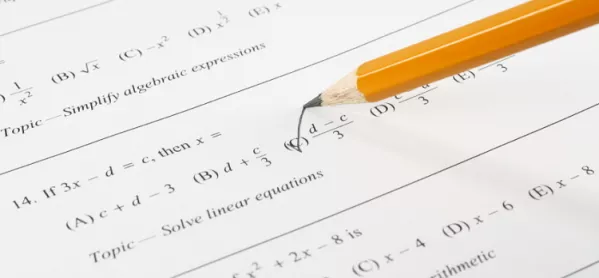Exams watchdog Ofqual has announced plans for a major new investigation into GCSE and A-level marking errors.
The regulator will carry out a “large and sustained” research project into marking errors and will use this work to “hold exam boards to account”, Michelle Meadows, Ofqual’s executive director for strategy, risk and research said today. The investigation is not specifically linked to the exams taken this summer.
Dr Meadows said the research would focus on subjects where marking tends to be the most controversial. It was likely to include GCSE English, A-level English literature, A-level history and A-level religious studies, she said.
She said Ofqual would measure the accuracy of exam boards’ marking and would publish a “high level” version of the results this autumn.
The news comes after the regulator announced plans to change the rules on appeals so that pupils’ grades can only be changed where there is a marking error, rather than a difference of opinion between examiners.
Ofqual’s investigation will involve:
- Asking senior examiners to mark scripts from scratch
- Working out the difference between marking errors and “legitimate differences of opinion”
- Establishing the common characteristics of “hard to mark” answers and using this to work out how to improve marking in future
Speaking at a Westminster Education Forum conference today, Dr Meadows said there had been a “reluctance on the part of the system” to be “really honest” about the fact that sometimes, marks changed on appeal not because they were wrong in the first place but because the second marker was more generous.
“That’s done us no favours at all,” she said. “I think this is partly responsible for the deterioration in confidence [in exam marks]. It allows users of qualifications to have expectations that are unrealistic of the assessment system.
“I think we have to just ourselves begin to talk about this more openly and the system will slowly come with us.”
Andrew Hall, chief executive of the AQA exam board, told the conference that although he understood Ofqual’s approach he was concerned that there would not be enough focus on getting marking right the first time around.
“I really do worry that deep, deep down we’re putting too much emphasis on analysing what’s happened when it’s gone wrong… rather than actually thinking about what do we do to get the marking right first time round.
“What we need to do is really try to balance this approach by putting in place a task that gives markers a chance of succeeding.”




